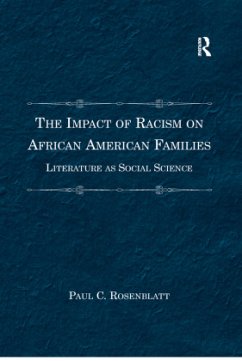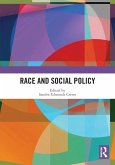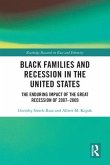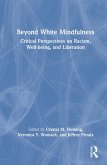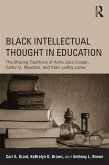In spite of the existence of statistics and numerical data on various aspects of African American life, including housing, earnings, assets, unemployment, household violence, teen pregnancy and encounters with the criminal justice system, social science literature on how racism affects the everyday interactions of African American families is limited. How does racism come home to and affect African American families? If a father in an African American family is denied employment on the basis of his race or a wife is demeaned at work by racist slurs, how is their family life affected? Given the lack of social science literature responding to these questions, this volume turns to an alternative source in order to address them: literature. Engaging with novels written by African American authors, it explores their rich depictions of African American family life, showing how these can contribute to our sociological knowledge and making the case for the novel as an object and source of social research. As such, it will appeal to scholars and students of the sociology of the family, race and ethnicity, cultural studies and literature.
'... the strength of this project is its ability to document how individual experiences of racism have correlating impacts on the family system. Of particular interest are the discussions of the impact of racism on communication within the family and on parenting. Recommended.' Choice 'This text is a powerful exploration of the private world of African American families. Race and racism are challenging topics and difficult to address in traditional research approaches. Here, the experiences of characters in novels by well-respected African American authors are examined through the lens of family systems theory, deepening our understanding beyond what we can learn from traditional approaches.' Kathleen R. Gilbert, Indiana University, USA 'Rosenblatt's innovative, illuminating thematic analysis compellingly synthesizes family systems social science, critical race theory, qualitative research, and narrative analysis. Building on a long career studying family responses to adversity, Rosenblatt's indispensable text inspiringly challenges academic boundaries and societal barriers that have made every-day racism and its consequences invisible outside of African American communities, offering a foundation for actualizing change.' Ester Shapiro, University of Massachusetts at Boston, USA

